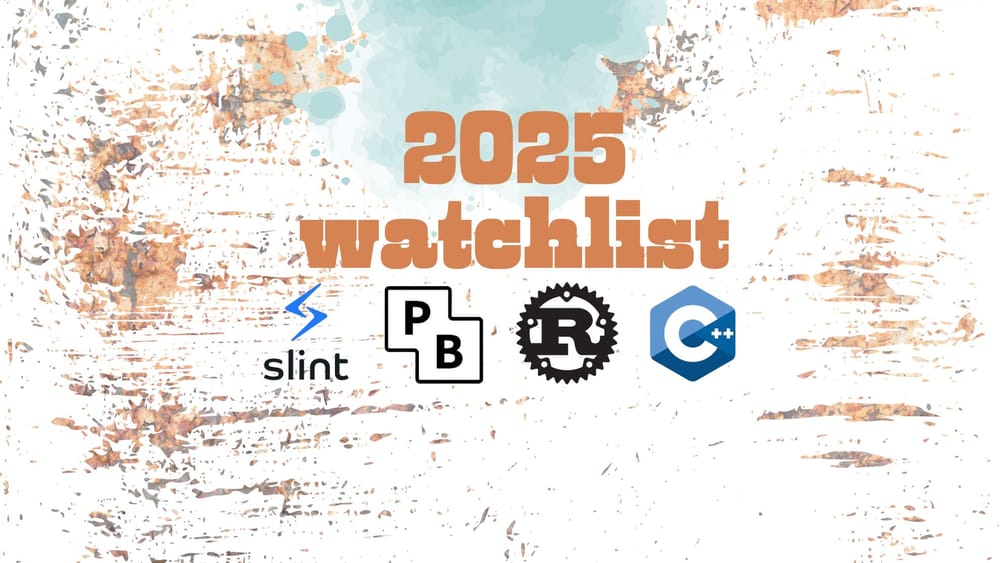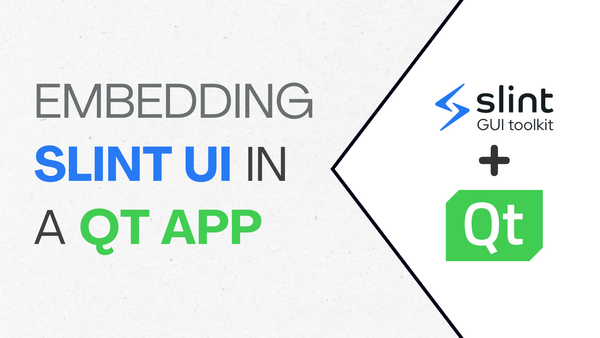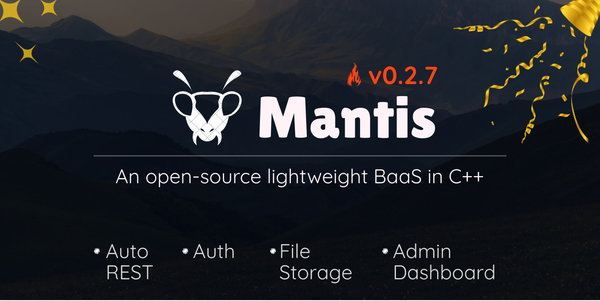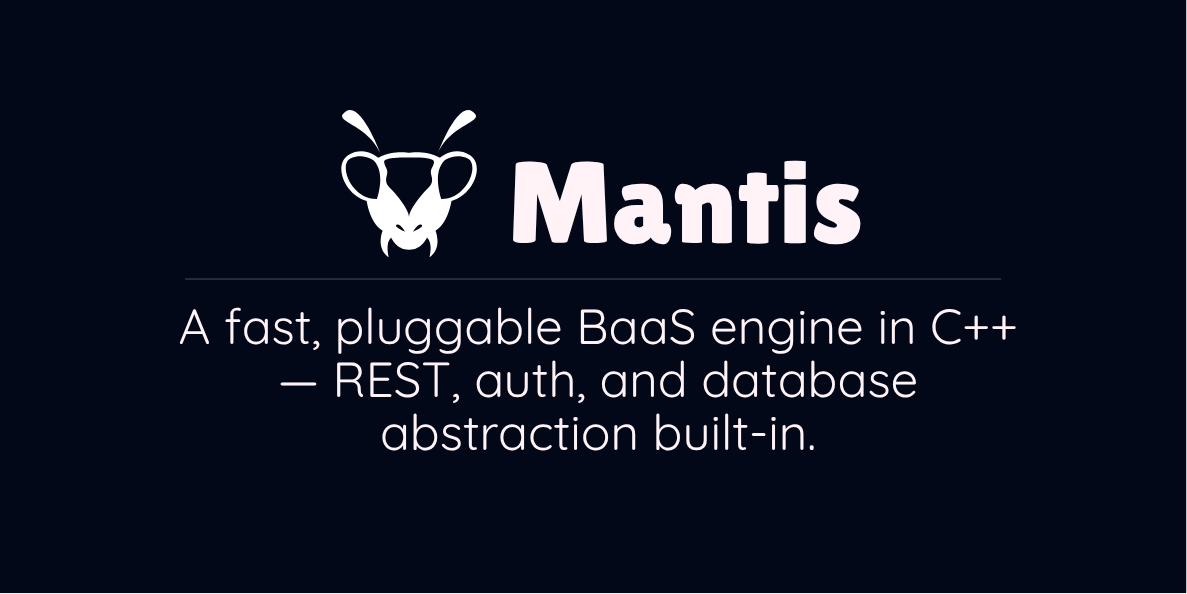New Year: Slint, PocketBase, Rust, and C++; My watchlist
There is always a plan, one we set when we begin every year. An introspection into some things we’d like to achieve or see come to pass. Nothing wrong with that, of course, but as we know, as much as it’s our dream, it can also be our limitation.
I'm excited about a few things—areas I'd like to develop, grow in, or simply some technologies I'd love to see flourish. These are based on what I enjoy and the trajectory I see my development journey taking. Let's dive in!
Slint
I'm sure we've all built GUIs, whether on the web/desktop or even mobile. As a native C++ developer, the choice of tooling is great, but the ordeal of getting everything up and running can be discouraging. I think Qt with its QML (Qt Markup Language) was a turning point, exactly what Electron with a C++ backend tried to do. With Qt/QML, speed, performance, and stability have been great, backed by a well-tested industry system.

But if you’ve developed in Qt, then you know the drawbacks, too. Some hate Qt's MOC (meta-object compiler) or its pricing model, or simply the ecosystem that locks you in. This year, I’m excited about Slint’s development and growth. Similar to Qt, it has its own markup language—quite simple for describing the UI—which later gets compiled to C++/Rust code. Being a small library and tool that can run on ESP and Raspberry Pi Pico boards with a very small footprint is a definite plus for me. Of course, if you’re on the Rust bandwagon, you’ll be excited to know that Slint is written in Rust.
PocketBase
Being a 10x engineer is our goal. But if you can't iterate faster on development, projects we start often end up in the "idea graveyard." One big pain point in projects is setting up an API/database. Spinning up MySQL/PostgreSQL/MongoDB/etc. and then developing APIs around them takes away precious time we could have used building the main product. Think of the countless hours spent debugging API auth middleware—yuck!

Enter PocketBase, written in Go, which compiles down to a single binary, hence widely marketed as a "backend in one file." It lives up to those expectations. Quite similar to Firebase or Supabase, it offers a real-time database, authentication, file storage, and an admin dashboard. One of its best features is the automatic generation of an API, making app development pretty fast. It's lightweight, running on SQLite, so you can spin it up or host it in seconds.
So, what's exciting so far? PocketBase has been evolving steadily, with many refinements over the past few months. We’re seeing fast SMTP setup, AWS storage setup, 3rd party OAuth integration, easy authentication flow on records, and maybe future expansions to other databases. For now, let’s enjoy spinning up a fully open-source backend in seconds for any project of interest.
Rust
If you've been around tech circles, Rust is definitely something you've heard about. It's the new bandwagon that developers are jumping on—a language that promises memory safety and some pretty neat language design choices. Despite its beauty, there are a few hurdles that make it tough for beginners. Still, with the rising company adoption of Rust, it’s going to be interesting to see all the software solutions that will be built with it.

C++
After many years working with C++, I’ve lost count of how many times someone told me the language was dead. There’s definitely a lot of legacy code, so phasing C++ out won’t be easy. However, the language has seen considerable evolution over the years. Each major standard brings in awesome features, and with the latest standards, C++ is growing simpler for beginners—adopting some Python-like syntax (not literal spaces and colons, though).

Whether C++ is moving in the right direction is up for debate. But to be honest, most new features won’t see much production use yet, because enterprises often stick with older standards. Still, the proposed and upcoming changes are worth waiting for—even though it might take ages before they land in production.
Regardless, there are numerous other fascinating technologies worth monitoring. What are you most excited about?





